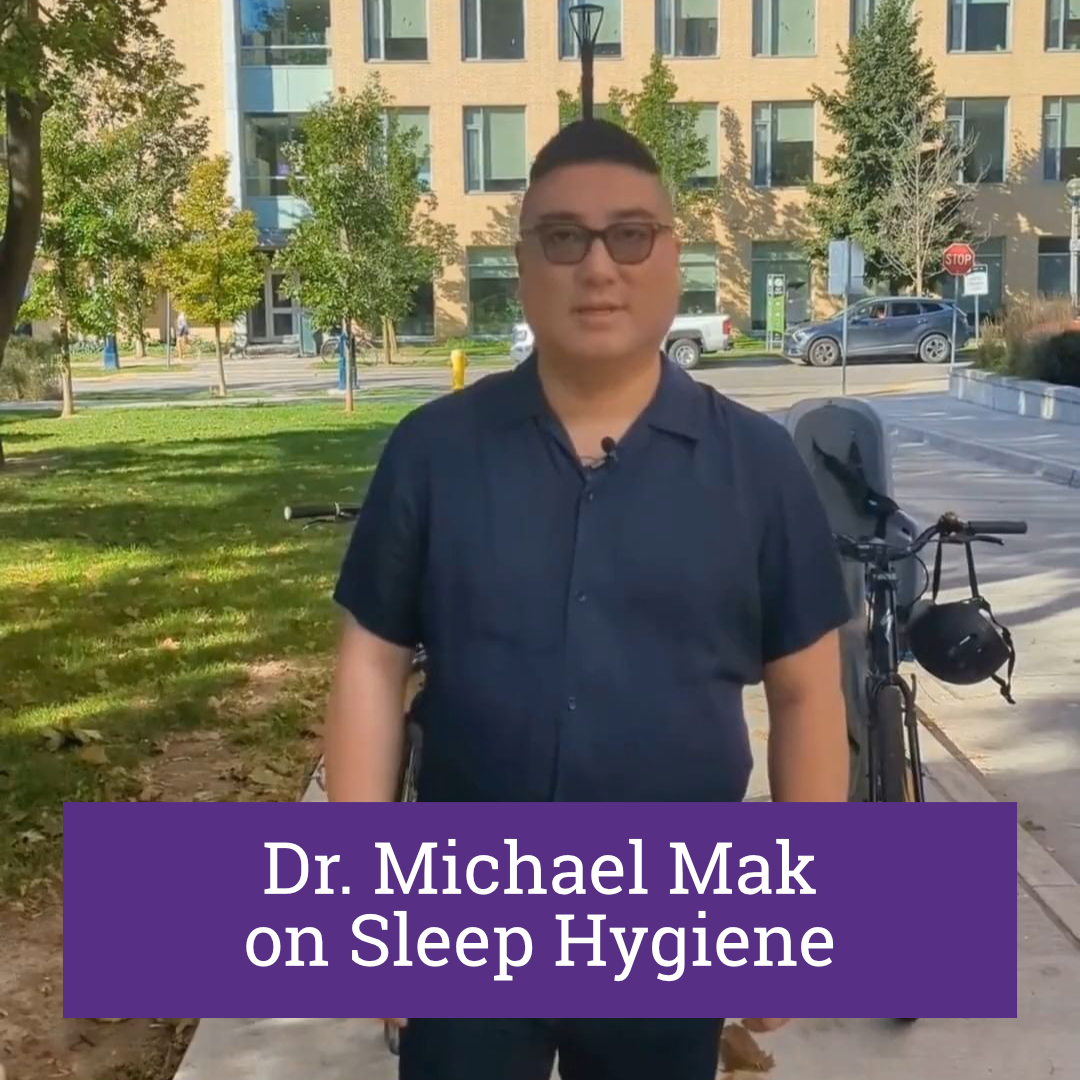Most people think that 8 hours is the gold standard when it comes to a good night’s sleep – but how much sleep we need really varies based on our age.
Actually, the older you get the less sleep you need. For example, while toddlers need 11 to 14 hours of sleep, including their naps, children need 9 to 12 hours, teens need 8 to 10 hours, and adults need between 7 to 9 hours of sleep (1,2,3,4,5).
Unfortunately in Canada, 1 in 4 children, and more than 1 in 4 adults are not getting enough sleep. (6,7).
Sleep is crucial for both children and adults as it supports vital functions for growth, learning, and overall health. For children, sleep supports brain function, helping with memory, learning, attention, and emotional regulation. Without sufficient sleep, children can struggle with attention, mood swings, and performance at school. Similarly, for adults, sleep is essential for memory, decision-making, emotional stability, and body recovery. It helps reduce the risk of chronic diseases like heart disease and diabetes, while also supporting mental health and immune function. At every stage of life, sleep plays a key role in people’s overall well-being (8,9,10,11,12,13,14).
Improve your sleep hygiene by following these simple tricks (7,14,15):
- Maintain regular bedtime and waketime.
- Create a comfortable sleep environment that is cool, dark, and quiet.
- Exercise regularly in the morning.
- Avoid caffeine, nicotine, and alcohol in the hours before going to bed.
- Relax your body and mind before going to bed.
- If you find yourself worrying at bedtime, try journaling or some deep breathing or meditation exercise.
- Get some natural daylight everyday.
- Avoid electronic screens at least one hour before your bedtime.
- Recommended Amount of Sleep for a Healthy Adult: A Joint Consensus Statement of the American Academy of Sleep Medicine and Sleep Research Society | Journal of Clinical Sleep Medicine | June 2015
- Consensus Statement of the American Academy of Sleep Medicine on the Recommended Amount of Sleep for Healthy Children: Methodology and Discussion | Journal of Clinical Sleep Medicine | November 2016
- National Sleep Foundation’s updated sleep duration recommendations: final report | Sleep Health | December 2015
- About Sleep | Sleep | CDC
- Healthy sleep for your baby and child | Caring for kids | December 2018
- Are Canadian children getting enough sleep? Infographic | Public Health Agency of Canada | April 2018
- Are Canadian adults getting enough sleep? Infographic | Public Health Agency of Canada | March 2019
- How Sleep Works – Why Is Sleep Important? | NHLBI, NIH | March 2022
- Children and Sleep | Sleep Foundation | November 2023
- Children’s sleep linked to brain development | National Institutes of Health (NIH) | August 2022
- Sleep: Benefits and recommended amounts for children | SickKids – About Kids Health | August 2024
- Sleep 101: Why Sleep Is So Important to Your Health | University of Michigan School of Public Health | March 2020
- Good Sleep for Good Health | NIH News in Health | April 2021
- Why Do We Need Sleep? | Sleep Foundation | April 2024
- Getting a Good Night’s Sleep | Anxiety Canada
- A prospective study of sleep duration and coronary heart disease in women | Arch Intern Med | January 2003
- Sleep duration as a risk factor for the development of type 2 diabetes | Diabetes Care | March 2006
- Self-reported sleep complaints with long and short sleep: a nationally representative sample | Psychosomatic Medicine | March 2004
- Sleep Duration and All-Cause Mortality: A Systematic Review and Meta-Analysis of Prospective Studies | Sleep | May 2010
- Insomnia
- Getting the Sleep You Need: When to Seek Treatment | Harvard Medical School
- Not Sleeping Well? It Might Be Time to See a Healthcare Provider | National Sleep Foundation | March 2022
Share our original Tweet!
Good #sleep is crucial to everyone’s health, but at least 1 in 4 of us isn’t getting enough.
— CAMH (@CAMHnews) October 10, 2024
See our collab post with @ScienceUpFirst featuring our Dr. Michael Mak (@mak_mike)
for tips on improving your sleep hygiene for better health.👇#ScienceUpFirst #WorldMentalHealthDay pic.twitter.com/d0TwBuVAgy
View our original Instagram Post!




